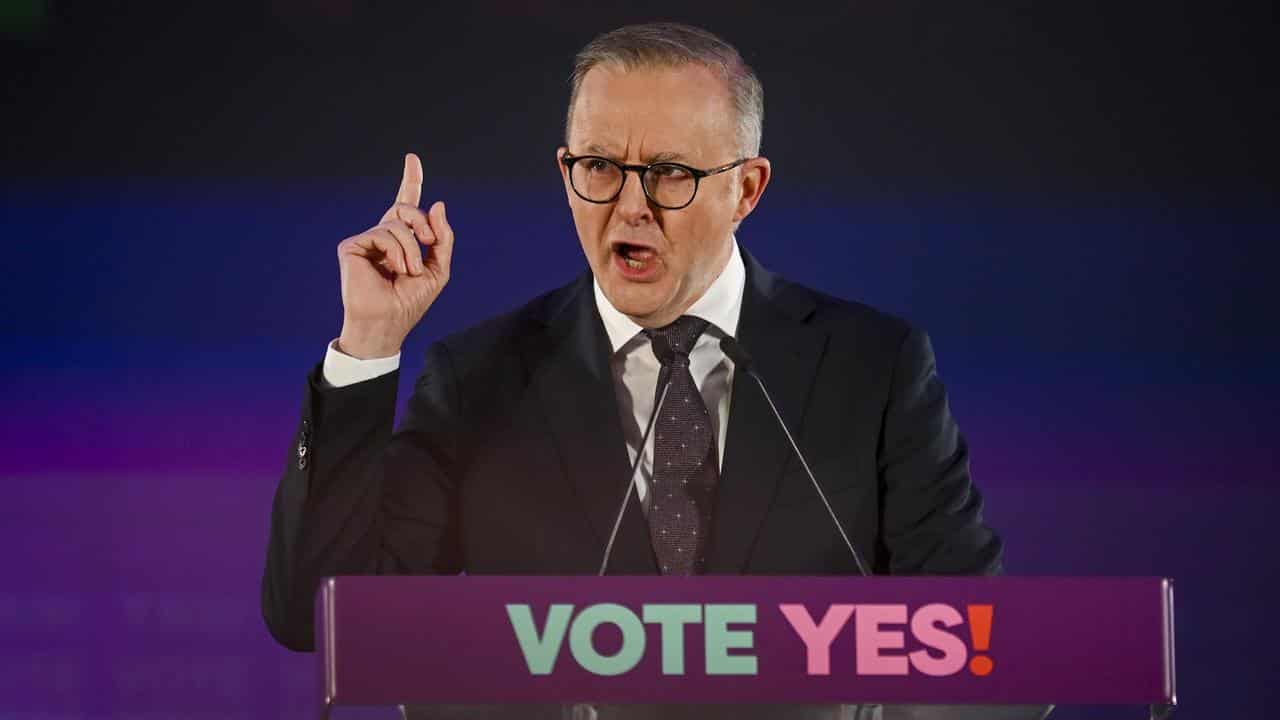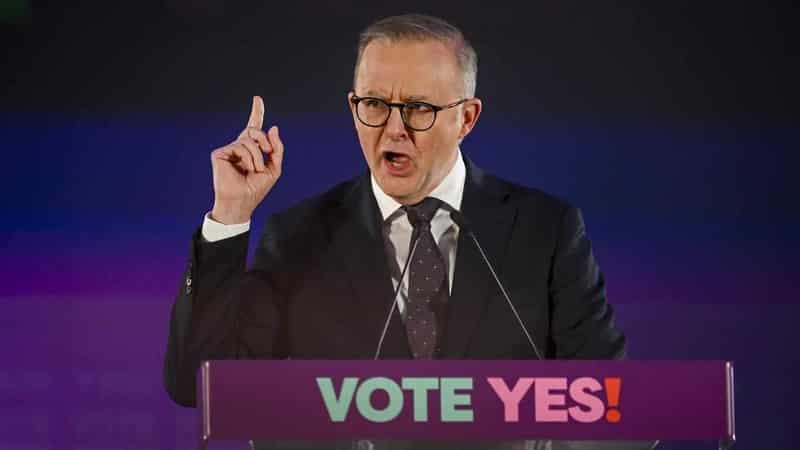
Australians will decide on October 14 whether to recognise Aboriginal and Torres Strait Islander people in the constitution with a voice to parliament and government.
Prime Minister Anthony Albanese on Wednesday rallied 'yes' supporters in Adelaide, where he announced the date for the first referendum in 24 years.
"My fellow Australians, our Australian story goes back 65,000 years. And what a privilege we have of sharing this continent with the oldest continuous culture on earth," he said.
"But our story is not finished yet. It's up to all of us to write the next chapter together. And we can start by writing one word - 'yes'."
He said the vote was not about a political party or a person.
"You're being asked to vote for an idea, to say 'yes' to an idea whose time has come."
The prime minister was joined at the event by Indigenous Australians Minister Linda Burney, South Australian Premier Peter Malinauskas and a host of other 'yes' advocates, some of whom were involved in the Uluru Statement from the Heart.
The statement released in 2017 flagged the idea of constitutional recognition through an advisory body.
Early voting will be available in the first week of October.
If the referendum succeeds, the federal parliament will legislate the details of the voice's composition, functions, powers and procedures.
"Recognition, listening to advice, parliament continuing as decision maker - that's the clear, positive, and practical request from Indigenous Australians," Mr Albanese said.
NT coalition senator and 'no' campaigner Jacinta Nampijinpa Price said the voice was divisive and elitist.
"The prime minister failed to provide any evidence whatsoever that demonstrates how it will improve the lives of Indigenous Australians," she said.
"When Australians do some research ... and don't just take the prime minister's words on face value, they are more likely actually to turn their votes to 'no'."
For the referendum to succeed, a majority of states need to vote 'yes' as well as the majority of Australians.
South Australia was chosen for the launch as it is viewed as a key battleground state for the poll.
Queensland and Western Australia are widely tipped to cast a majority 'no' vote.
It is anticipated NSW and Victoria will swing behind the 'yes' campaign.
The 'yes' case has the backing of many faith groups, sporting codes, local councils, peak business organisations, unions, universities and corporations.
Tens of thousands of volunteers have registered to doorknock and send messages of support over the six-week campaign.
Former Liberal prime minister Malcolm Turnbull joined Environment Minister Tanya Plibersek and 'yes' volunteers to hand out flyers in Sydney on Wednesday.
In Tasmania, Liberal MP Bridget Archer hit the streets to encourage voters to back the proposal, while Greens leader Adam Bandt and NDIS Minister Bill Shorten talked to commuters in Melbourne's inner north.
History is against the vote succeeding, with eight of the country's 44 referendums being successful.
Opposition Leader Peter Dutton said the voice risked "legal challenges and delays" in government policy and programs.
"No issue would be beyond its reach."
Former prime minister Tony Abbott said there was no need for such a body as "we've been listening intently to Aboriginal people for many decades".









